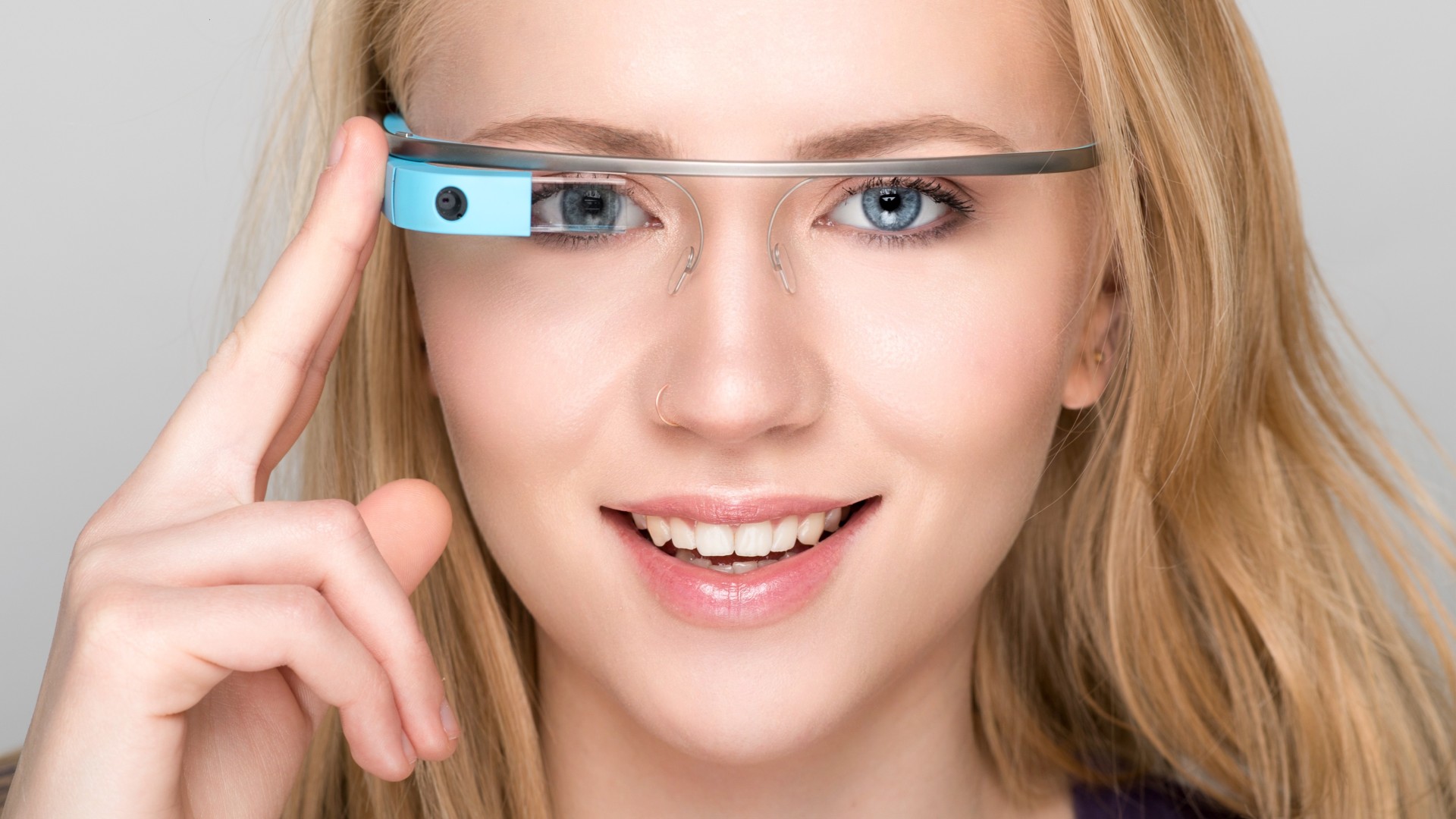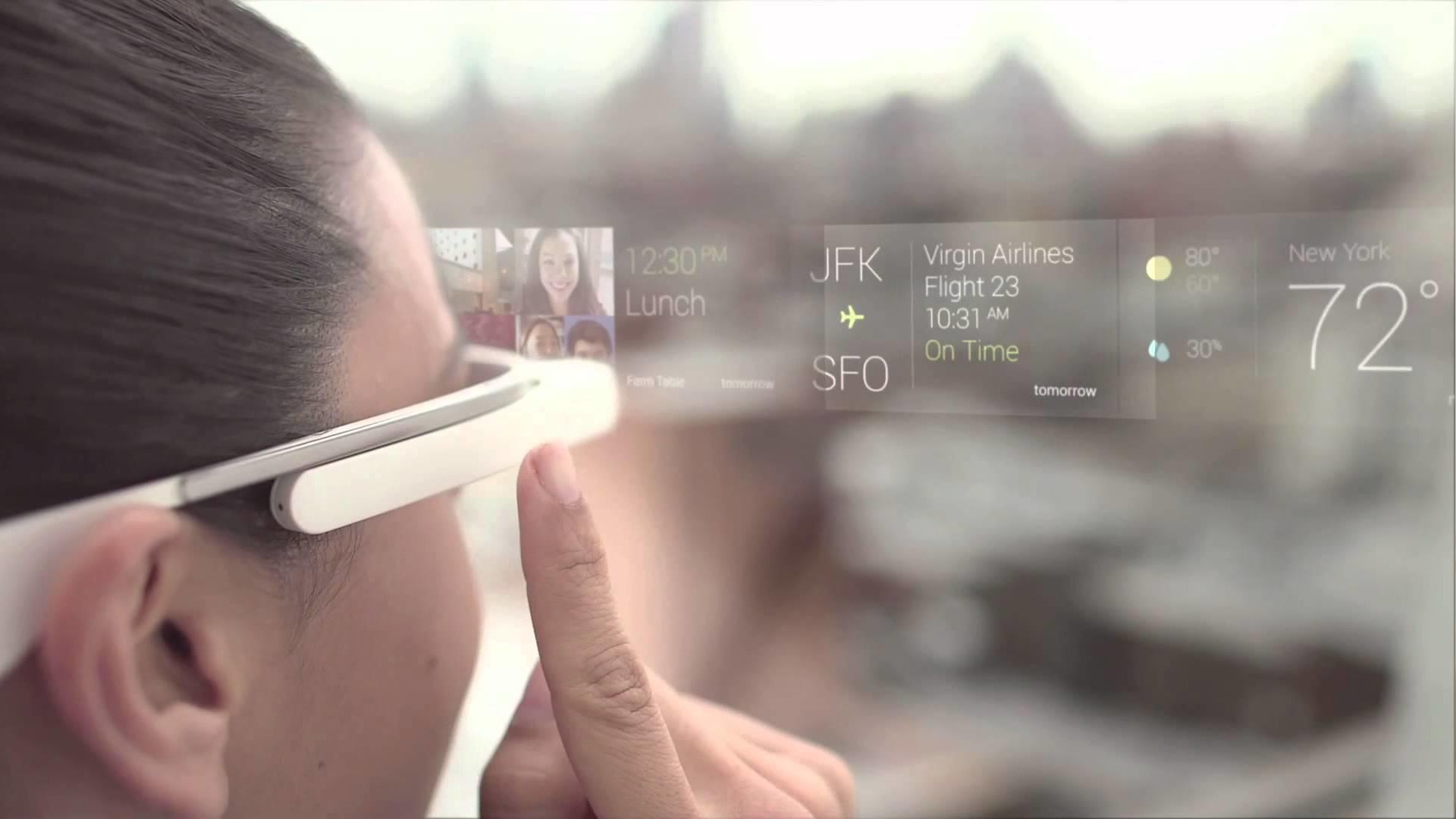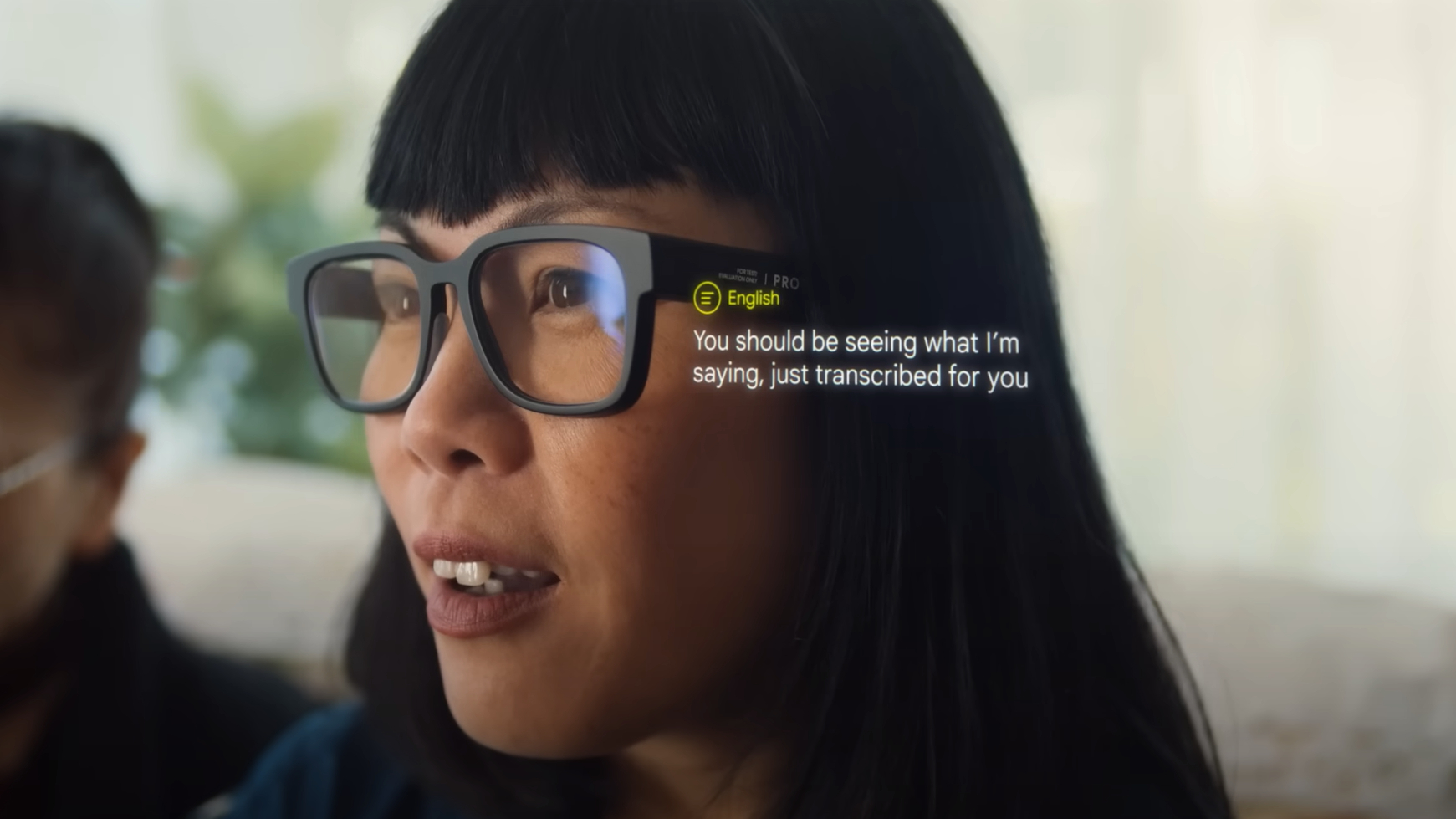Google Glass 2.0: A smart glasses comeback that's long overdue
Is Google reviving a cult Glassic?

Remember Google Glass? It’s OK if you don’t. Despite promising to be the dawn of augmented reality and a grand leap forward for wearable tech, Google’s smart glasses went out of fashion faster than the Vuvuzela (you’ll likely have to Google that one).
However, Google’s dream of delivering AR smart glasses to market might not be as dead in the water as we once thought — and the recently revealed Project Astra may be our best look to date at how it's looking to make that dream a reality.
A video released by Google to coincide with Google I/O titled Project Astra: Our vision for the future of AI assistants, showcases an AI agent, powered by Google’s multimodal Gemini AI model, running on both a Pixel phone and a similar pair of prototype smart glasses to the ones last seen in a 2022 YouTube video titled Breaking down language barriers with augmented reality.
As a genuine backer of smart glasses, and someone who has been lucky enough to review several pairs of the best options on the market, my heart leapt into my mouth when this was revealed. Is there still hope for a Google Glass revival?
The untimely demise of Google Glass
The world of tech is a very strange place. As an industry ceaselessly in the process of invention, innovation, and something else beginning with “i” to follow the rule of three, the tech landscape is in a never-ending state of evolution.
New ideas are constantly being toyed with and tested behind closed doors, and sometimes, not often, but sometimes, a company will eagerly show the world what it’s been hard at work on, only to find out that the world was not equipped to deal with what it had to show or was proposing.
Such a thing happened in 2013, and so begins the story of Google Glass.
Sign up to receive The Snapshot, a free special dispatch from Laptop Mag, in your inbox.
While not the first to develop a pair of consumer smart glasses, Google’s were among the most ambitious — offering hands-free control of a voice-activated augmented reality display for the startling price of $1,500 (~$2,000 in today’s money adjusted for inflation).

However, in a move that seems incredibly hard to fathom after adjusting to life in 2024, the quaint folk of 2013 were outraged over the fact that Google Glass was outfitted with a built-in camera. Many feared for their privacy (a fear we seem to have completely grown out of just over a decade later), believing it could be used to secretly record them. It was even banned from use in certain public spaces.
The outrage spawned the term “Glassholes,” a pejorative used against anyone rude enough to wear Google’s smart glasses out in public spaces. They were mercilessly shamed for adopting this tech, as was Google, who eventually pulled their futuristic frames from public sale in 2015 and repositioned them as enterprise devices until shutting up shop altogether last year.
Google Glass: A long-rumored return
Of course, within that time, humanity collectively stopped caring about its privacy. Now we’re mostly a collective of extroverted lens lovers who wouldn’t blink twice at an IRL streamer wandering the streets, waving their camera around with reckless abandon.
Even still, Google was once bitten and twice shy when potentially stepping back into the consumer market. The following years were a constant back and forth of will-they-won’t-they rumors anticipating a Google Glass 2.0 follow-up — especially when more companies went down the smart glasses route without so much as a mild murmur in their direction.
It was 2022 before we saw anything concrete surrounding Google’s continued smart glasses intentions with our first look at a prototype pair of next-gen smart glasses. But even then they’d dropped the built-in camera for an audio-only approach to its wearable. Then, after Apple announced the Vision Pro in June 2023 Google reportedly ditched its Glass plans again.
Even Google’s Senior Director of Engineering for XR and AR projects at the time walked from the project and the company, taking to Twitter (now X) to state his key reasons for leaving being “recent changes in AR leadership and Google’s unstable commitment and vision have weighed heavily on my decision.”
At this stage, it was seemingly all over (again). That is, until October 2023, when code was spotted within the Google app for Android that pointed towards “Iris,” one of the project names believed to be associated with a Google Glass follow-up.
This brings us right the way around to this year’s Google I/O, and Project Astra.
Project Astra: The Glass is half full
So what are the chances that Google is giving us a hint at things to come with its Astra video? Well, not zero.
While there have been reports that Google was planning to focus solely on software, developing an AR platform for OEMs to make use of in their own hardware (something desperately needed for current smart glasses manufacturers to take the next step toward the mainstream) Google I/O did see co-founder Sergey Brin hinting at augmented-reality glasses making a return with the help of AI, which is exactly what the Project Astra video showcased.
Whether or not this means Google is officially back in the smart glasses business remains to be seen. But it does leave the doors wide open if it should decide to do so. As the now-dormant Google Glass website states: "The journey doesn't end here."
More from Laptop Mag
- AR Smart glasses are everything the Vision Pro should have been
- I used AR Glasses to replace my monitors — here’s what happened
- Google I/O 2024: Android 15, Google Gemini, and everything else announced

Rael Hornby, potentially influenced by far too many LucasArts titles at an early age, once thought he’d grow up to be a mighty pirate. However, after several interventions with close friends and family members, you’re now much more likely to see his name attached to the bylines of tech articles. While not maintaining a double life as an aspiring writer by day and indie game dev by night, you’ll find him sat in a corner somewhere muttering to himself about microtransactions or hunting down promising indie games on Twitter.

